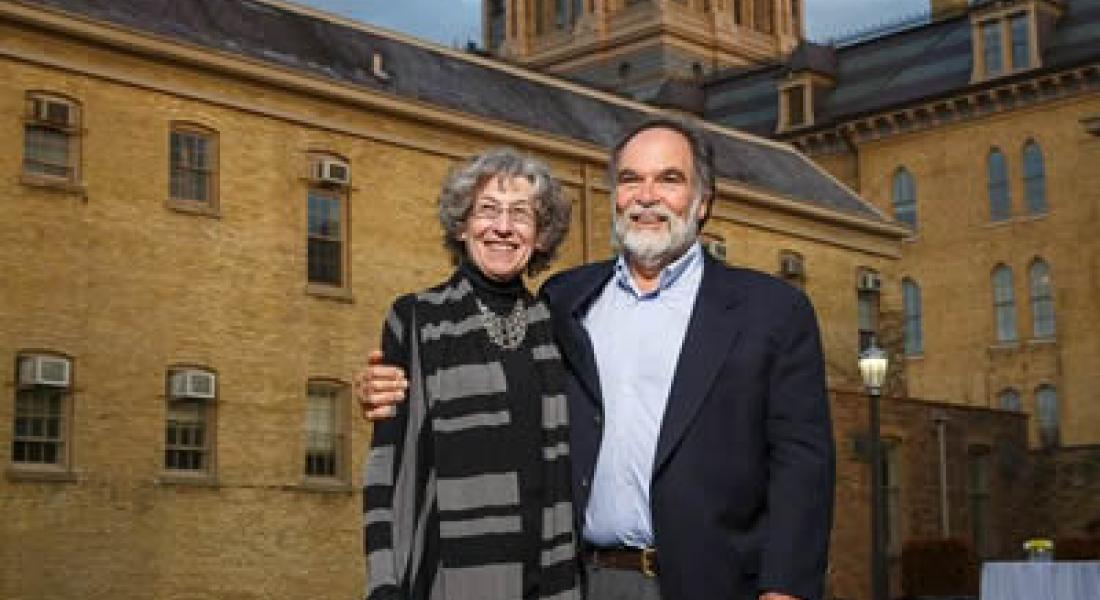
Pre-eminent scholars of comparative politics and Latin America and long-time friends of the Kellogg Institute Ruth Berins Collier and David Collier received the ultimate scholarly tribute in late April: a two-day conference in their honor building on their seminal contributions to the field.
Organized by and featuring their former and current students at the University of California, Berkeley—many now prominent scholars in their own right—the conference paid tribute to the Colliers' four decades of extraordinary scholarship and their dedication to mentoring the next generation of political scientists.
"We gather to celebrate the gifts you have poured into our lives and the lives of so many," Kellogg Faculty Fellow Rev. Timothy Scully, CSC, one of the conference organizers, told the honorees in his opening remarks. "You have used your gifts to support everything supportive of democracy, integrity, justice, fairness, and love."
In turn, David Collier told the assembled group, "teaching you has been the experience of a lifetime."
The conference, "A New Critical Juncture? Changing Patterns of Interest Representation and Regime Politics in Contemporary Latin America," used as its starting point the "Collier and Collier" volume fundamental to the training of every comparativist, Shaping the Political Arena: Critical Junctures, the Labor Movement, and Regime Dynamics in Latin America (Princeton, 1991; 2nd ed., University of Notre Dame Press, 2002).
"It was an honor for the Kellogg Institute to host this conference," said Faculty Fellow Michael Coppedge. "It was also a treat for me, as well as for our graduate students, to have a couple of days to connect not only with David and Ruth, but also with their many prominent former students."
Scully organized the conference with former Kellogg visiting fellows Steven Levitsky (Harvard University) and Deborah Yashar (Princeton University) as well as Diana Kapiszewski (Georgetown University) and Thad Dunning (University of California, Berkeley).
Both the Colliers are former Kellogg visiting fellows and nearly one-third of the conference participants have spent time at the Institute as visiting or faculty fellows or guest scholars.
"It was an extraordinary celebration of more than 35 years of scholarship and teaching," said Levitsky. "Watching Collier students from the 1980s debate, laugh, and share memories with present-day Collier students was a truly unique and wonderful experience."
"And there was no better or more fitting place to hold the conference than Kellogg—because of David and Ruth's longstanding ties to Kellogg, because so many of their students passed through Kellogg, and because they are so intimately connected to the ideas and values that have been core to Kellogg since its founding."
A video tribute included many more members of the community enriched by the Colliers' support—some former students and some not.
"David and Ruth have been hugely inspirational in my career and David is one of the great institution-builders in political science, building up qualitative studies as a field," said former Kellogg Institute Director Scott Mainwaring from London, where he is teaching this academic year.
Noting how helpful David Collier had been to the Kellogg Institute and Notre Dame over the years, Mainwaring called the pair "agenda-setting scholars and unbelievable teachers."





